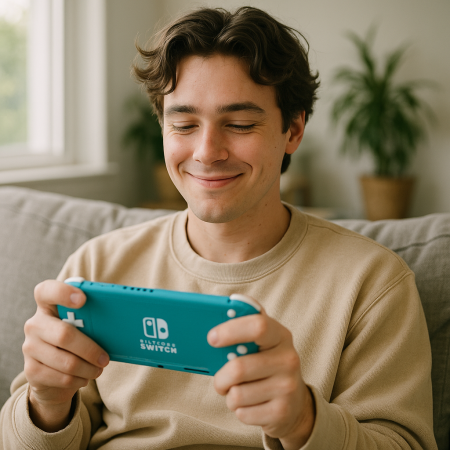Play has always been more than just a pastime, it’s how humans learn, connect and express creativity. From childhood games to digital adventures, play sits at the centre of imagination. But in a world of leaderboards, microtransactions and endless updates, something simple has been lost: the freedom to play without expectation. The good news is that gaming is slowly rediscovering its sense of joy — where the reward isn’t in the win, but in the experience itself.
Why Play Still Matters
For many, gaming has become goal-driven. We grind levels, chase loot boxes and race toward unlocks. These systems can be fun, but they also turn leisure into labour. The healthiest form of play isn’t about achieving — it’s about exploring. It’s curiosity in motion.
That’s why titles like sandbox games, creative builders and indie storytelling experiences are thriving. They strip away rigid objectives and give players permission to experiment. You can:
- Wander without consequence.
- Fail without punishment.
- Succeed without pressure.
This mindset mirrors how we played as children — without worry, without metrics. You didn’t “win” tag or hide and seek; you simply played. It’s that emotional simplicity that modern game design is slowly learning to value again.
The Power of Low-Stakes Fun
Modern gaming can feel like performance. Stream culture, competitive matchmaking and ranking systems have created a constant sense of being watched — even when you’re playing solo. But not every game needs to test skill. Some are built to soothe, to entertain or to spark nostalgia. The rise of cozy and casual genres shows just how many players crave relaxation over adrenaline.
Games like Stardew Valley, Animal Crossing or Unpacking found massive audiences because they replaced stress with serenity. They reward small, meaningful actions: planting crops, decorating homes organising life at your own pace. The joy lies in rhythm and repetition — the little rituals that make gaming feel restorative instead of draining.
That same philosophy extends to online play. Platforms offering accessible, cost-free games capture that easygoing charm perfectly. The popularity of free online pokies highlights this trend. These experiences don’t demand investment or competition; they offer light entertainment and instant engagement. It’s gaming stripped back to what it should be — fun, fast and free from expectation.

Rediscovering the Spirit of Play
The best kinds of games remind us why we started playing in the first place. They spark curiosity, laughter and wonder. They help us switch off from pressure and reconnect with simple joy. You can see that shift across gaming culture: developers designing for experience, not endurance; communities valuing creativity over competitiveness.
Here are a few key takeaways for both players and creators:
- Not all progress needs metrics. Allow space for exploration and experimentation.
- Gamers crave rest, not just challenge. Build moments of calm into design loops.
- Choice creates comfort. Offer flexible modes — single-player, casual or offline play.
- Accessibility equals inclusivity. Simpler interfaces and entry-level mechanics broaden community appeal.
- Reward the journey. Make the process of playing satisfying, not just the end result.
Game developers can learn from minimalism. You don’t need complex mechanics to build lasting enjoyment; you need emotional honesty. The same applies to players — the goal isn’t to collect achievements, it’s to collect moments.
The Future of Effortless Fun
Gaming’s next evolution won’t just be about graphics or speed; it will be about experience quality. We’ve seen the rise of competitive esports and cinematic AAA productions. The next wave will likely celebrate peaceful interactivity — experiences that respect time, focus and attention.
Expect to see more titles that blend mindfulness and play. Expect a stronger focus on emotional satisfaction instead of difficulty curves. Expect experiences that understand that gaming, at its best, is self-expression — not competition.
Play is one of the few human instincts that never fades. It’s why we tinker, explore and create. The medium may evolve, but the essence doesn’t change. Games that embrace low pressure and high enjoyment remind us that fun is not a reward — it’s a right.

